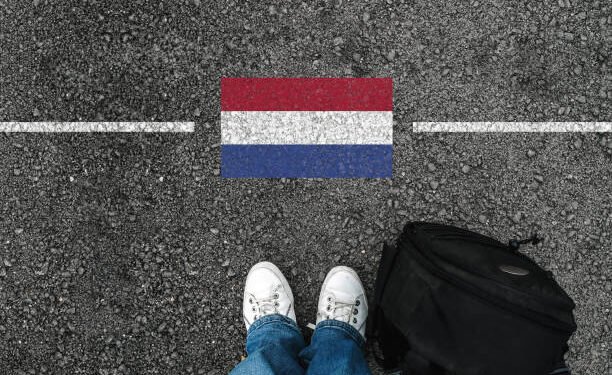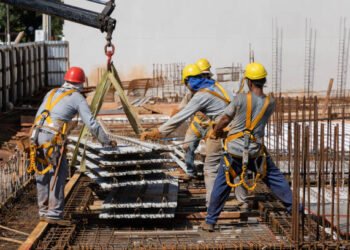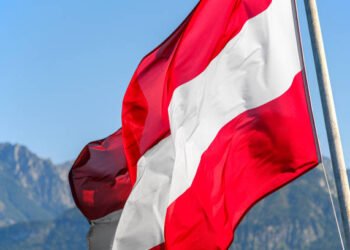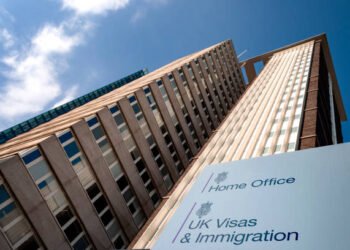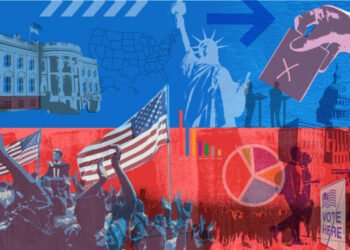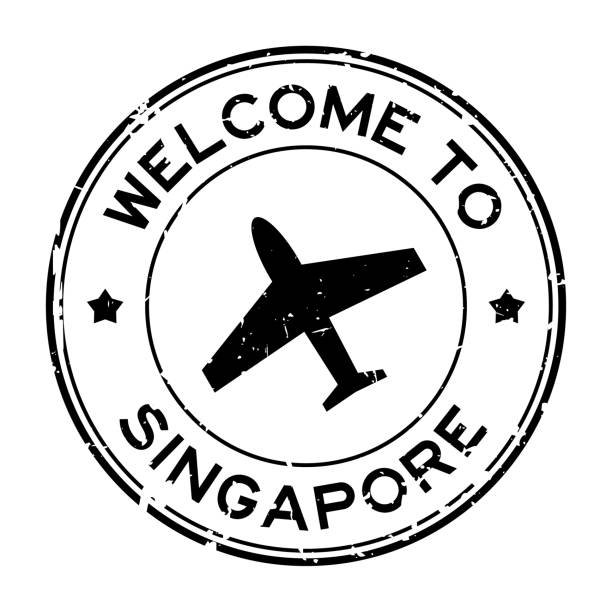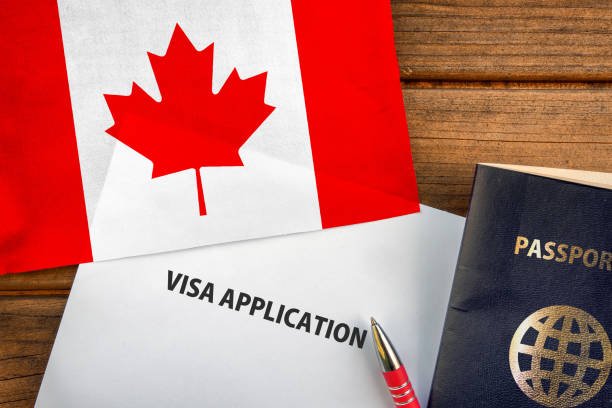Tired of low-paying jobs and dreaming of earning over €60,000 a year in a clean, safe, and opportunity-rich country? Also, If you’ve been waiting for the right moment to move abroad and earn what you’re truly worth, that moment is now. The Netherlands is calling you. With its booming tech industry, world-class healthcare, and high demand for skilled workers, securing a Dutch work visa could be your golden ticket to a better life and it’s easier than you think.
Advertisement
What if I told you that moving to the Netherlands as a skilled worker could not only double your income but also open the door to permanent residency and citizenship. As someone who understands the challenges of immigration and the rewards of global opportunities, I’ve created this guide to help skilled professionals like you navigate the Dutch visa system step-by-step without confusion or costly mistakes.
The Dutch Economy and Demand for Skilled Talent
The Strength of the Dutch Economy
The Netherlands has been recognized as one of the most economically stable and business-friendly nations in Europe. It is home to global giants such as Philips, Shell, ASML, and ING. Over the years, the economy has been driven by strong sectors like technology, logistics, agriculture, energy, and finance.
An open market policy has been adopted, and foreign investment has been consistently encouraged. A robust infrastructure, high quality of life, and a favorable tax system have contributed to making the Netherlands a prime destination for skilled professionals.
Advertisement
Demand for Skilled Professionals
A growing need has been observed in various fields including IT, engineering, healthcare, finance, and scientific research. The government, along with private companies, has actively created programs and pathways for highly skilled workers to be recruited internationally. Priority has been given to addressing skill shortages in technical and scientific sectors.
Types of Netherlands Work Visas for Skilled Workers
Several visa options have been introduced by the Dutch government to attract foreign professionals. These options are tailored to different professional backgrounds and immigration intentions.
Highly Skilled Migrant Visa (Kennismigrant)
This visa has been designed specifically for skilled foreign workers who have been offered employment by a recognized sponsor in the Netherlands. A streamlined application process is provided, and fast-track processing is often applied.
Key Features:
- No labor market test is required
- Faster processing (usually within 2–4 weeks)
- Residence permit is typically granted for the duration of the contract
EU Blue Card
The EU Blue Card is a work and residence permit intended for highly qualified non-EU citizens. It allows mobility within the EU after 18 months of employment in the Netherlands.
Key Features:
- Higher salary threshold than the Kennismigrant visa
- Educational qualifications must be at a university level
- Valid for up to 4 years, with potential to renew

Regular Work Visa (GVVA – Single Permit)
The GVVA (Gecombineerde vergunning voor verblijf en arbeid) is used for jobs that don’t fall under the highly skilled category but still require foreign talent. Both the residence and work permit are issued as a single document.
Key Features:
- Application must be submitted by the employer
- Approval from the Employee Insurance Agency (UWV) is required
- Suitable for mid-skilled and support roles
Orientation Year Permit for Graduates
This visa is meant for international graduates from Dutch universities or recognized top global institutions. It allows job searching and employment in the Netherlands without requiring a work permit.
Key Features:
- Valid for one year
- No employer sponsorship required
- Opportunity to switch to a skilled migrant visa upon employment
Comparison Table of Visa Types
| Visa Type | Eligibility | Validity | Processing Time |
|---|---|---|---|
| Highly Skilled Migrant | Job offer + IND sponsor | Contract-based | 2–4 weeks |
| EU Blue Card | Job + Degree + High Salary | Up to 4 years | 4–6 weeks |
| GVVA (Regular Work Visa) | Job offer + UWV approval | Job-based | 4–8 weeks |
| Orientation Year Permit | Dutch or top global degree | 1 year | 2–3 weeks |
Eligibility Criteria for Skilled Workers
To be considered eligible for a work visa in the Netherlands as a skilled professional, specific criteria must be met. These criteria may vary based on the visa type but generally include the following:
Educational Qualification Requirements
An academic degree, preferably at the bachelor’s or master’s level, is usually required. For the EU Blue Card and Kennismigrant routes, the degree must be relevant to the field of employment and issued by an accredited institution.
Job Offer from an IND-Recognized Sponsor
A job offer must be secured from a Dutch employer that has been registered with the Immigration and Naturalisation Service (IND) as a recognized sponsor. The IND maintains a public list of such sponsors.
Minimum Gross Salary Thresholds (2025)
As of 2025, the updated salary thresholds are as follows:
- Highly Skilled Migrants (30+ years): €5,331/month gross
- Highly Skilled Migrants (<30 years): €3,909/month gross
- EU Blue Card holders: €6,245/month gross
- Orientation Year Graduates (starting salary): €2,801/month gross
These amounts are adjusted annually by the Dutch government and must be met without including allowances or benefits.
Age, Background Check, and Insurance Requirements
Applicants must be above 18 years of age, possess a clean criminal record, and must be medically fit. Valid Dutch health insurance must be obtained within four months of arrival. In some cases, a tuberculosis (TB) test must be completed within three months.
Required Documents
Before the application process is started, the following documents must be gathered. All documents must be translated into Dutch, English, French, or German (if not already in these languages), and legalized where required.
Valid Passport
The passport must be valid for at least six more months beyond the planned duration of stay. It must include at least two blank visa pages.
Signed Employment Contract
A job contract must be provided that outlines job role, salary, duration, and working hours. It must be signed by both parties.
Proof of Qualifications
Copies of academic certificates and professional qualifications must be submitted. Some professions may require credential evaluation via Nuffic (Dutch diploma recognition).
CV and Motivation Letter
An up-to-date curriculum vitae (CV) outlining professional experience and a letter of motivation explaining the intent of employment in the Netherlands must be included.
Health Insurance Proof
Proof of having or intending to obtain Dutch health insurance must be provided. Registration with a Dutch insurer is mandatory after arrival.
IND Sponsorship Certificate
This certificate, issued by the employer, confirms that they are a recognized sponsor with the IND. It is a crucial part of the application.
Tuberculosis Test (if applicable)
Nationals of certain countries may be required to undergo a tuberculosis test upon arrival. The list of affected countries is maintained by the Dutch health authorities.
Application Process – Step-by-Step
The Netherlands work visa process has been designed to be employer-led in most cases. A step-by-step application process is outlined below:
Step 1: Get a Job Offer from a Dutch Sponsor
A formal job offer must first be received from a Dutch company that is registered as a recognized sponsor with the IND. This employer will typically lead the visa process.
Step 2: Employer Submits Visa Application to IND
Once the employment contract is signed, the employer must submit the visa/residence permit application to the IND on behalf of the applicant. Required fees must also be paid at this stage.
Step 3: Wait for IND Decision (2–4 Weeks)
The IND usually processes applications within 2 to 4 weeks. If additional documents are needed, the processing period may be extended. Updates are sent to the employer and the applicant.
Step 4: Receive MVV (Entry Visa) if Required
If the applicant resides in a non-EU country and requires an MVV (long-stay entry visa), they must visit the Dutch consulate or embassy in their country to collect it. Biometric data (photo and fingerprints) will also be taken.
Step 5: Register at Municipality and Collect Residence Permit
Upon arrival in the Netherlands, the applicant must register at the local Gemeente (Municipality) and provide a local address. The residence permit card is then collected from the IND or pick-up location.
Processing Time and Fees
1 Standard Processing Times for Each Visa Category
Visa processing in the Netherlands is known for its efficiency, especially for recognized sponsor applications. Estimated timelines are as follows:
- Highly Skilled Migrant Visa: 2 to 4 weeks
- EU Blue Card: 4 to 6 weeks
- GVVA (Regular Work Visa): 4 to 8 weeks, due to involvement of the UWV
- Orientation Year Visa: 2 to 3 weeks
These timelines may vary based on document completeness, embassy procedures, or biometric data collection requirements.
2 Government Fees and Potential Employer Costs
Application fees are set and reviewed annually by the Dutch Immigration and Naturalisation Service (IND). As of 2025, the following standard fees apply:
- Highly Skilled Migrant: €350
- EU Blue Card: €400
- GVVA (Regular Work): €300
- Orientation Year Visa: €215
In most cases, the employer bears the application fee for the Highly Skilled Migrant route. However, fees for other types may be paid by the applicant unless otherwise arranged with the employer.
3 Fast-Track Options for Highly Skilled Migrants
An expedited processing route has been made available to recognized sponsors. Applications submitted by these employers are prioritized by the IND and usually decided within two weeks. This fast-track system is available only when the employer has met all requirements for recognized sponsorship.
Finding a Sponsor or Employer in the Netherlands
How to Search for IND-Recognized Sponsors
The Dutch government maintains a public list of recognized sponsors, which can be accessed through the official IND website. These employers are authorized to hire foreign workers through the highly skilled migrant route.
Steps:
- Visit the IND Recognized Sponsors List
- Filter by sector (e.g., ICT, education, healthcare)
- Verify the sponsor’s status before applying
Job Portals and Recruitment Agencies
Several platforms have been created specifically to connect international talent with Dutch employers. These platforms focus on English-speaking or international-friendly companies.
Recommended Portals:
- Undutchables.nl – specializes in placing international professionals
- IamExpat Jobs – features listings by IND-recognized employers
- LinkedIn – powerful for connecting directly with recruiters
- Together Abroad – includes job postings for expats in various industries
Tips for Resume and Cover Letter (Dutch Style)
To improve chances of being hired, applications must follow Dutch workplace expectations.
- Use a clean, concise 1–2 page CV
- Include a professional photo (optional but common in the Netherlands)
- Highlight language proficiency, especially English and Dutch
- Focus on measurable achievements in prior roles
- In the cover letter, be direct, confident, and tailored to the employer
Rights and Benefits of Work Visa Holders
Ability to Bring Family Members
Holders of Dutch work visas are allowed to bring their spouse, registered partner, and children under 18. Family reunification visas must be applied for separately but may be processed alongside the primary applicant’s permit.
Family members are often granted open work permits, enabling them to seek employment in the Netherlands without a separate employer sponsor.
Pathway to Permanent Residence and Dutch Citizenship
After residing in the Netherlands continuously for five years, a permanent residence permit may be applied for, provided the applicant has passed the civic integration exam.
Following another year of permanent residence, naturalization as a Dutch citizen can be pursued, subject to language proficiency, background checks, and renunciation of former nationality (with some exceptions).
Access to Healthcare, Education, and Social Benefits
Work visa holders and their dependents are entitled to the following:
- Mandatory public healthcare coverage
- Enrollment in Dutch schools for children
- Access to childcare benefits, housing subsidies, and other social schemes (based on eligibility)
Tax Benefits for Expats (30% Ruling)
Under the 30% ruling, qualified expats may receive up to 30% of their gross salary tax-free for a maximum of five years. This incentive is offered to reduce relocation costs and enhance net take-home pay.
To qualify:
- The employee must be recruited from abroad
- Specialized skills must be proven to be scarce in the Dutch labor market
- Application for the ruling must be submitted jointly by the employer and employee within four months of employment start
Common Reasons for Rejection – And How to Avoid Them
Incomplete Documentation
One of the most frequent reasons for visa denial is the failure to provide complete, accurate, and legalized documents. Applications are often delayed or rejected due to missing apostilles, outdated translations, or inconsistent details.
Solution: Use a checklist and verify document requirements with the IND or a migration consultant.
Employer Not Recognized by IND
Applications submitted by employers who are not registered as recognized sponsors are automatically rejected for routes like the Highly Skilled Migrant visa.
Solution: Confirm sponsor status on the IND’s official registry before accepting a job offer.
Salary Below Required Threshold
A salary that does not meet the minimum gross monthly requirement (specific to age or visa type) will result in immediate denial. Even minor miscalculations or unverified bonuses may lead to issues.
Solution: Ensure that salary conditions are clearly outlined in the contract and meet IND thresholds for 2025.
Mistakes in Application Forms
Applications that include typos, incorrect dates, or mismatched information between submitted forms and attached documents are often delayed or denied.
Solution: Double-check all entries, or consider having a legal expert review the application.
Tips for an Error-Free Application
- Submit certified translations where needed
- Keep a digital and printed copy of every document
- Track progress via the employer or IND portal
- Respond promptly to IND requests for clarification
Extending, Switching, or Upgrading Your Visa
Extension Eligibility and Process
Work visas may be extended before expiration, provided employment continues under the same or a new recognized sponsor. The application for extension should be submitted at least three months before the current permit expires.
New proof of employment and updated salary conditions must be submitted during the extension.
Switching from Student or Residence Visa to Work Visa
Foreign students or researchers residing in the Netherlands may switch to a work visa upon graduation or completion of research. The most common transition is from an Orientation Year Visa to a Highly Skilled Migrant Visa.
Requirements:
- Valid job offer
- IND-recognized sponsor
- Salary threshold specific to graduates
Upgrading to EU Blue Card or Permanent Residence
Once eligibility criteria are met, a transition from a national work permit to an EU Blue Card may be initiated. This move allows easier relocation within the EU in the future.
Similarly, permanent residency applications may be submitted after five years of lawful stay, provided integration and language requirements have been fulfilled.
Life in the Netherlands for Immigrants
Cost of Living and Housing (Affordable Options)
The cost of living in the Netherlands is considered moderate compared to other major European economies. While cities like Amsterdam, Utrecht, and Rotterdam may present higher rental prices, more affordable housing options can be found in nearby towns and suburban areas.
Estimated Monthly Costs (2025):
- Shared apartment rent: €600–€900
- Utilities and internet: €150–€250
- Groceries and essentials: €250–€400
- Public transport: €70–€120
Affordable housing platforms such as Pararius.nl, Funda.nl, and Kamernet.nl are commonly used. Registration with the municipality is required for all rented accommodations.
Dutch Work Culture and Environment
A strong emphasis has been placed on work-life balance, with flexible hours, open communication, and flat organizational hierarchies being standard. Punctuality, efficiency, and direct communication are valued in Dutch workplaces.
Key characteristics:
- 36–40-hour work weeks
- Remote work options are often available
- Feedback and collaboration are openly encouraged
Language Requirements – Is Dutch Necessary?
Although Dutch is the official language, many companies, especially in tech, science, and finance sectors, operate entirely in English. It is possible to live and work comfortably in the Netherlands without speaking Dutch, particularly in international roles.
However, learning Dutch is highly recommended for:
- Easier integration and networking
- Understanding legal documents and public communication
- Eligibility for permanent residence or citizenship (A2 language level required)
Free or low-cost Dutch classes are often offered by municipalities or online platforms such as Duolingo, Taalthuis, and DutchPod101.
Tips for Integration and Networking
Successful integration into Dutch society involves both social and professional efforts. Immigrants are encouraged to participate in local events, language meetups, and expat communities.
Helpful strategies:
- Attend networking events and career fairs
- Join local sports clubs or volunteer organizations
- Register with Meetup.com, Internations, or Facebook expat groups
- Embrace cultural customs such as cycling, celebrating King’s Day, and local festivals
Resources & Tools
Useful Websites and Tools
Trusted online platforms can simplify every stage of the relocation and immigration process. These websites offer updated information, job listings, legal advice, and community support.
- IND.nl: Official immigration and visa authority
- Nuffic.nl: Credential recognition and educational assessments
- Expatica.com: Expat living guide, news, housing, and jobs
- IamExpat.nl: Job listings and visa resources
Legal Help and Immigration Consultants
For complex cases or fast-tracked processing, licensed immigration consultants and legal professionals may be consulted. Assistance is typically offered in:
- Application form preparation
- Document translation and legalization
- IND communication and appeals
Recommended firms: Everaert Advocaten, Kroes Advocaten, RLegal Immigration
Community Support Groups for Expats
Support from other immigrants can make adaptation easier. Whether it’s for finding accommodation, meeting friends, or discussing immigration hurdles, many groups have been formed.
- Facebook Groups: Expats in Netherlands, Amsterdam Expats, Dutch Job Seekers
- Internations.org: Global expat community with regular in-person events
- DutchNews.nl Forums: For questions, advice, and real-life experiences.
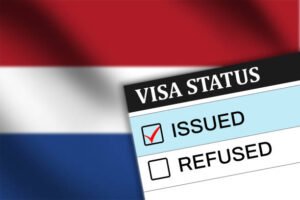
Conclusion
The Netherlands has positioned itself as a world-class destination for skilled professionals. A strong economy, forward-thinking immigration policies, and high living standards have made it a top choice for those seeking career growth and life satisfaction abroad.
Opportunities are being created in abundance, particularly in tech, healthcare, engineering, and education. A visa system that favors skilled migration, along with transparent application procedures, has made relocation smoother than ever.
With access to healthcare, housing, and one of Europe’s best work-life balances, a successful and fulfilling life can be built in the Netherlands.
Final Reminder: The Netherlands Can Be Your New Home
If the right qualifications have been obtained and the right steps are followed, a career in the Netherlands is within reach. With planning, perseverance, and proper documentation, the Dutch dream can become a reality.
The next chapter of your professional journey might just begin in the Netherlands. Don’t wait, start preparing today. Share this! Of course there’s love in sharing.

